The dreams are a sign that things are happening—I keep dreaming about the same things, and it’s very clear, very detailed. It’s the same scenario as before, that is, Sigvard knocking on the door and taking me to the assembly hall. We eat enormous amounts of food and dance to dansband classics. I talk to all my relatives. They tell stories about Mats Nilsson’s eldest daughter and how she started the new branch of the family when she married and moved north from Åre. I don’t remember those stories when I wake up.
13/6
I started with Mother’s stories, continued with Gran’s generation, and am working my way back in time to form a sort of backwards history. I wrote about the war and how Great-gran smuggled shoes and lard to occupied Norway. Then I wrote about how Gran met Grandpa and moved down to Stockholm. Right now Gran is a teenager, it’s the twenties, and she’s making her first bra out of two stocking heels because she can’t afford to buy a real one. She and her sister are getting ready to go to a dance in Järpen. It’s an hour’s bike ride. I’m looking forward to writing the story about my great-great-grandfather who built a church organ out of a kitchen sofa. Some things you can’t make up.
The dreams change a little each night. I’ve discovered that I have a fair amount of control of my actions. I wander around in the cabins and talk to the inhabitants. In true dream fashion, they all come from little villages with names that don’t exist like Höstvåla, Bräggne, Ovart; all located somewhere north of Åre, by the lakes that pool between the mountains.
Sigvard’s wife is called Ingrid. They have three teenage children.
15/6
I’m a little disgusted by the direction this is all taking. I don’t know how to interpret what’s going on. The front doors are always unlocked, I go where I wish. Last night and the night before last, it happened several times that I walked into a house and people were having sex. On all surfaces, like kitchen tables or sofas. They greet me politely when I open the door and then go back to, not making love, but fucking. Nobody seems particularly into it. They might as well be chopping onions or cleaning the floors. In and out and the flat smack of flesh on flesh. And it’s everyone on everyone: man and wife, father and daughter, mother and son, sister and brother. But always in heterosexual configurations. I asked Sigvard what they were doing. We’re multiplying, he said. That’s what people do.
20/6
It’s Midsummer. I’ve managed just over eighty pages. I’ve gotten as far back as great-great-great-grandfather Anders, son of Mats Nilsson, and if I want to get even further back I’ll have to do some research on Anders’ five siblings or just ramble out into fairy tale country. Not that making stuff up seems to be a problem. There’s no end to it. I’ve gone back to the start to fill in holes, like Mother and Gran’s siblings. No editing just yet, just more material. Brita asked me if I wanted to come with her to celebrate Midsummer. I declined. All I want to do is write. Besides, it’s freezing outside, and the gnats are out in full force. It’d be a good idea, research-wise, to see Brita, but I don’t feel like being around people.
21/6
Sigvard came knocking on my door. He was wearing a wreath of flowers and held a schnapps glass in one hand. We danced to dansband music, the legendary Sven-Ingvars; we competed in sack racing and three-legged racing. Most of the women and girls had large, rounded bellies and moved awkwardly. Wlittle meatballs and sausages, fresh strawberries with cream, toasting each other with schnapps spiced with cumin and wormwood. It’ll get darker now, said Sigvard. He burst into tears. Yes, I replied. But why is that so terrible? It makes me think of death, he said.
1/7
150 pages! That’s an average of five pages a day. Very well done. The last ten days have been about putting more meat on the bones I finished building around Midsummer. In other words, embroidering what facts I had with more ideas of my own. Editing is going to take a lot longer, but I have a solid structure from beginning to end – no bothersome gaps or holes.
I decided to stop at Anders. I need to check the other siblings now, especially Anna. I’ve tried to talk to Brita, but she’s always busy whenever I come over. I’m done with this place, though. I’m homesick. I’ve booked a ticket to Stockholm for the sixth. I can go back home with a good conscience.
4/7
They’re weeping and wailing. They’re all dressed in black. They won’t say why. I’ve told them I’ll be leaving soon, but I don’t think that’s why they’re sad.
5/7
I finally caught Brita for a cup of coffee. She apologized for being so busy. I asked her about Mats Nilsson’s children, but she doesn’t know much outside our own branch. Still, I asked her if she knew anything about Anna, the eldest daughter. Not much, she said. But then there wasn’t much to know about her. She disappeared without a trace when she was twenty years old. The consensus was that she probably drowned herself in Kall Lake, or in one of the sinkholes in the quarry. In any case, she was never seen again.
6/7
I’m leaving on the night train. I cleaned out the cottage; all that’s left is to hand over the keys to Brita.
Sigvard knocked on the door in my dream. The whole village was crowding behind him. They looked aged and crumpled somehow, and they were weeping loudly. Some of them didn’t seem to be able to walk on their own—they were crawling around. Sigvard came in first; he dropped to his knees and flung his arms around my legs. I sat down on the floor. He put his head in my lap. My dear, he said. It was the best summer ever. We’re so grateful. Then he sighed, and lay still. The others came, one by one. They lay down around me and curled up. They sighed and lay still. I patted their heads. There, there, I said. Go to sleep now, go to sleep. Their bodies were like light shells. They collapsed in on themselves.
I was woken up just after seven by an ice-cold draft. The front door was open. I went for a last walk in the village. Clusters of tiny spheres hang under the eaves.
Cilla was twelve years old the summer Sara put on her great-grandmother’s wedding dress and disappeared up the mountain. It was in the middle of June, during summer break. The drive was a torturous nine hours, interrupted much too rarely by bathroom— and ice cream breaks. Cilla was reading in the passenger seat of the ancient Saab, Sara stretched out in the back seat, Mum driving. They were travelling northwest on gradually narrowing roads, following the river, the towns shrinking and the mountains drawing closer. Finally, the old Saab crested a hill and rolled down into a wide valley where the river pooled into a lake between two mountains. Cilla put her book down and looked out the window. The village sat between the lake and the great hump of Reindeer Mountain, its lower reaches covered in dark pine forest. The mountain on the other side of the lake was partly deforested, as if someone had gone over it with a giant electric shaver. Beyond them, more shapes undulated toward the horizon, shapes rubbed soft by the ice ages.
“Why does no one live on the mountain itself?” Sara suddenly said, pulling one of her earphones out. Robert Smith’s voice leaked into the car.
“It’s not very convenient, I suppose,” said Mum. “The hillside is very steep.”
“Nana said it’s because the mountain belongs to the vittra.”
“She would.” Mum smirked. “It sounds much more exciting. Look!”
She pointed up to the hillside on the right. A rambling two-storey house sat in a meadow outside the village. “There it is.”
Читать дальше
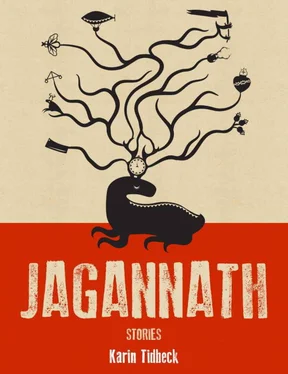
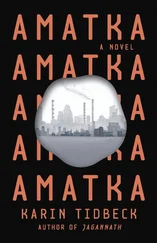
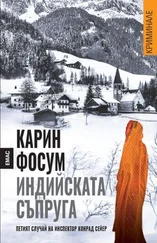
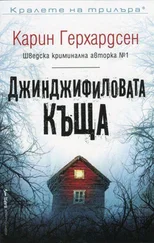
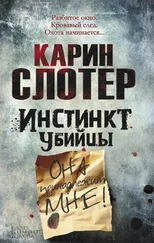
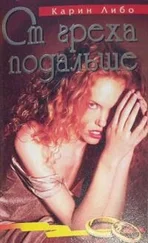
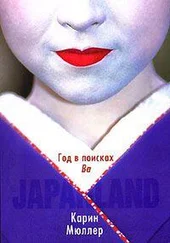
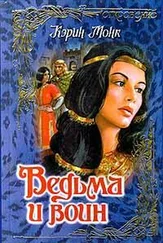


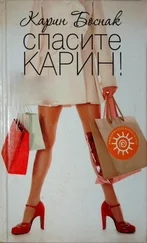

![Карин Тидбек - Аматка [ЛП]](/books/438406/karin-tidbek-amatka-lp-thumb.webp)